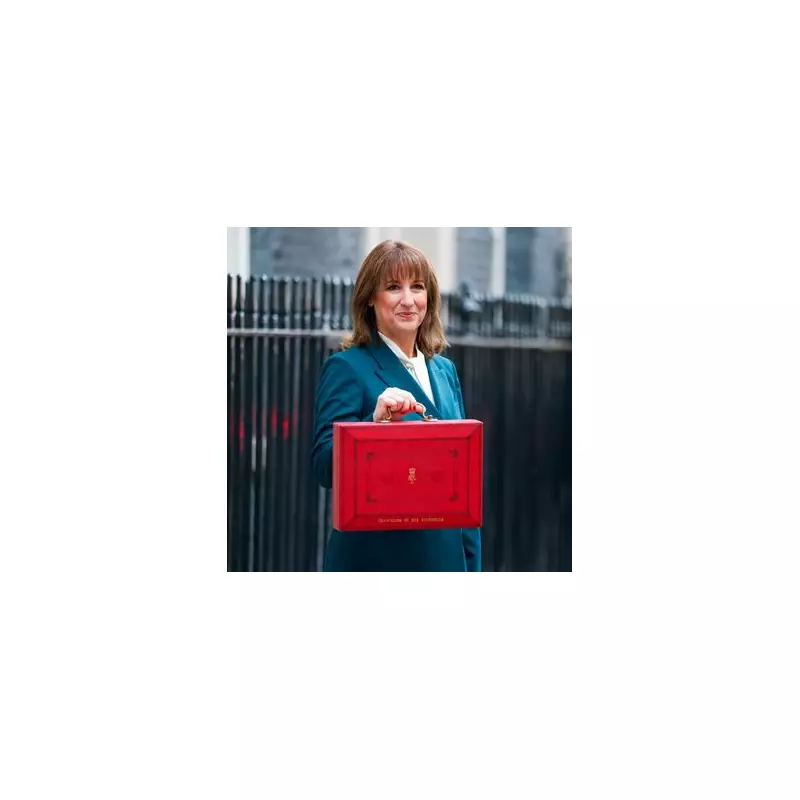
Former Labour Leader Applauds Historic Budget Decision
Neil Kinnock, the former Labour leader, has enthusiastically endorsed Chancellor Rachel Reeves's Budget, describing the decision to abolish the two-child benefit limit as a significant step in reversing what he termed "Tory injustice and damage." Lord Kinnock, who led the Labour Party from 1983 to 1992, told The Mirror that the move represents a "fine way of combatting child poverty for the good of the economy."
This endorsement carries substantial weight, given that Lord Kinnock had previously joined former Prime Minister Gordon Brown during the summer in calling for the Conservative-era policy to be scrapped. At that time, he expressed strong criticism of the Conservative government's legacy, stating they had left the country in a condition that would "make Charles Dickens furious" due to the "intolerable" hardship faced by many.
Budget Measures and Economic Impact
The landmark Budget announcement confirmed that the controversial two-child benefit limit will be removed starting April 2026. This policy, originally introduced by the Conservatives in 2017, has been a subject of intense political debate and will now be abolished under the new Labour government.
Lord Kinnock elaborated on his support, stating: "It's an excellent decision - a fine way of combatting child poverty and good for the economy. Abolishing the cap - together with the strong, practical commitment to the NHS, sustained focus on public investment, and new revenue from those with high incomes and high price assets - shows that Labour is gradually reversing Tory inefficiency, damage and injustice."
He acknowledged the scale of the challenge ahead, noting that "The Tory harm was so great that renewal cannot be fast - but it is certain. That provides the vital sense of positive direction that the country needs."
Government Defence and Broader Budget Context
Prime Minister Keir Starmer and Chancellor Rachel Reeves have both mounted a robust defence of the Budget, which includes measures funded by what has been described as a £26 billion tax raid. The Prime Minister emphasised that the Budget "asked everybody to make a contribution" to safeguard essential public services and support families struggling with the cost of living.
A significant measure announced on Wednesday involves extending the freeze on income tax thresholds. This policy, which the Chancellor had previously acknowledged would impact working people, is projected to result in significant changes to the taxpayer landscape by 2029/30. According to government estimates, this will create:
- 780,000 more basic-rate taxpayers
- 920,000 more higher-rate taxpayers
- 4,000 more additional-rate income tax payers
When questioned about potential breaches of Labour's manifesto commitments on taxation, Sir Keir responded: "We made a number of commitments in our manifesto which we have kept, but I accept that... we have asked everybody to make a contribution. I tell your viewers precisely why that is: to make sure that we can protect our NHS."
The Prime Minister strongly defended the decision to scrap the two-child limit, pushing back against suggestions that the move was designed to appease restive Labour MPs. "It's impossible to argue that this is a position that has been adopted just in the last few weeks. It is my long-standing ambition. I'm proud to be the Prime Minister who has done more on child poverty than any prime minister ever," he declared.
Sir Keir highlighted the "massive impact" of what he called the "abhorrent" Tory policy on children's health, emphatically stating: "I'm not going to apologise for lifting half a million children out of poverty."
Analysis and Economic Distribution
Chancellor Reeves expressed pride in her Budget measures, particularly the abolition of the two-child benefit limit, which is expected to lift 450,000 children out of poverty. She emphasised her efforts to keep tax increases "to an absolute minimum on ordinary working people" while dismissing Tory criticism that characterised the Budget as a "Benefits Street budget."
Reeves pointed out that 60% of families benefiting from the abolition of the two-child limit have parents who are in work, countering narratives about welfare dependency.
The Resolution Foundation, a left-leaning think tank, provided analysis showing that poorer working age families emerge as the biggest winners from the Budget measures. Their research found:
- Poorest families gained approximately £90 per year on average
- The richest half of households will lose around £1,000 annually
- Poorer pensioners lost an average of £220
- Wealthier pensioners will be £680 worse off
The think tank also revealed that by choosing not to implement a previously speculated 1p income tax rise - which would have breached Labour's manifesto commitment - individuals earning less than £35,000 will actually be worse off under the current measures.
Further analysis showed that three in five families benefiting from the removal of the two-child limit include at least one working adult. Overall, 560,000 families are set to gain an average of £5,310 in 2029-30 as a direct result of the policy change.
Despite these positive measures for many families, the Resolution Foundation cautioned that the coming decade continues to appear "really tough" for living standards, noting that most of the financial "pain" from the Budget decisions will not be felt until 2028.






